Vegan Calcium: The Ultimate Guide to the Best Plant-Based Sources
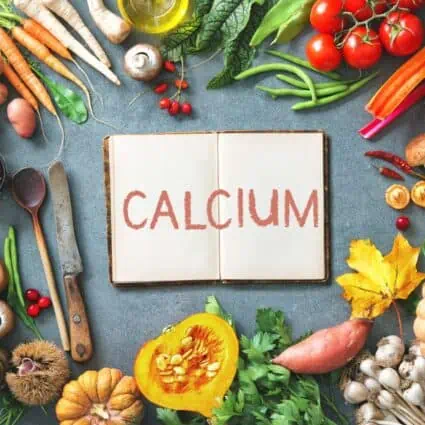
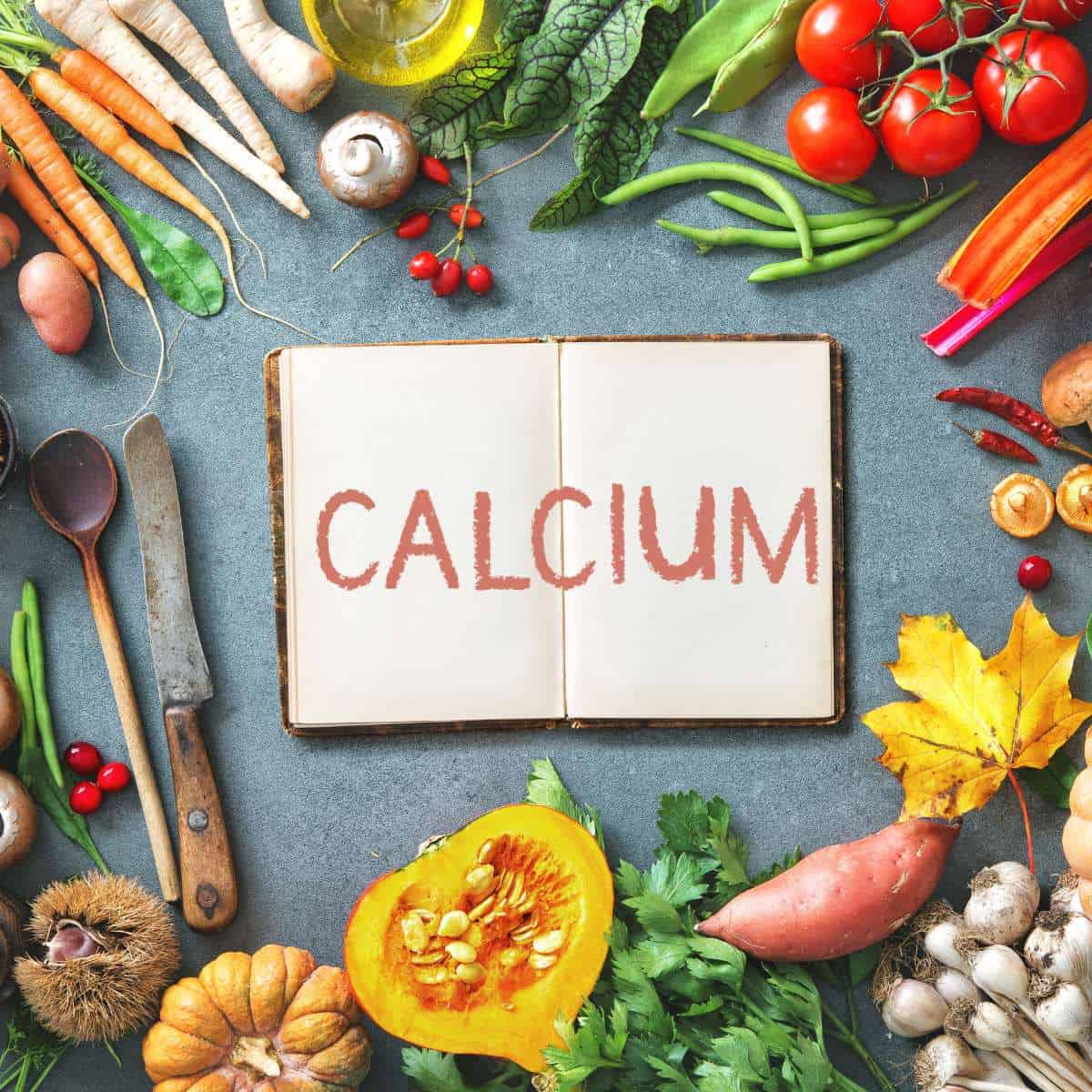
Calcium is the most abundant mineral in our bodies, stored almost entirely in our bones and teeth. But how does it get there? Dispelling a common myth, dairy isn’t the sole gateway to calcium. You can get all the calcium your body needs from three main vegan calcium sources: plants, calcium fortified foods, and supplements!
However, vegans still need to tread with awareness when it comes to their calcium intake. In this plant-based nutrition guide, we discuss what calcium is, why it’s essential for human health, and how vegans can ensure they’re meeting their calcium requirements.
Table of Contents
What is Calcium?
Calcium is an element, like gold or oxygen. On the periodic table (a chart of all known elements), it’s represented by the symbol “Ca.”
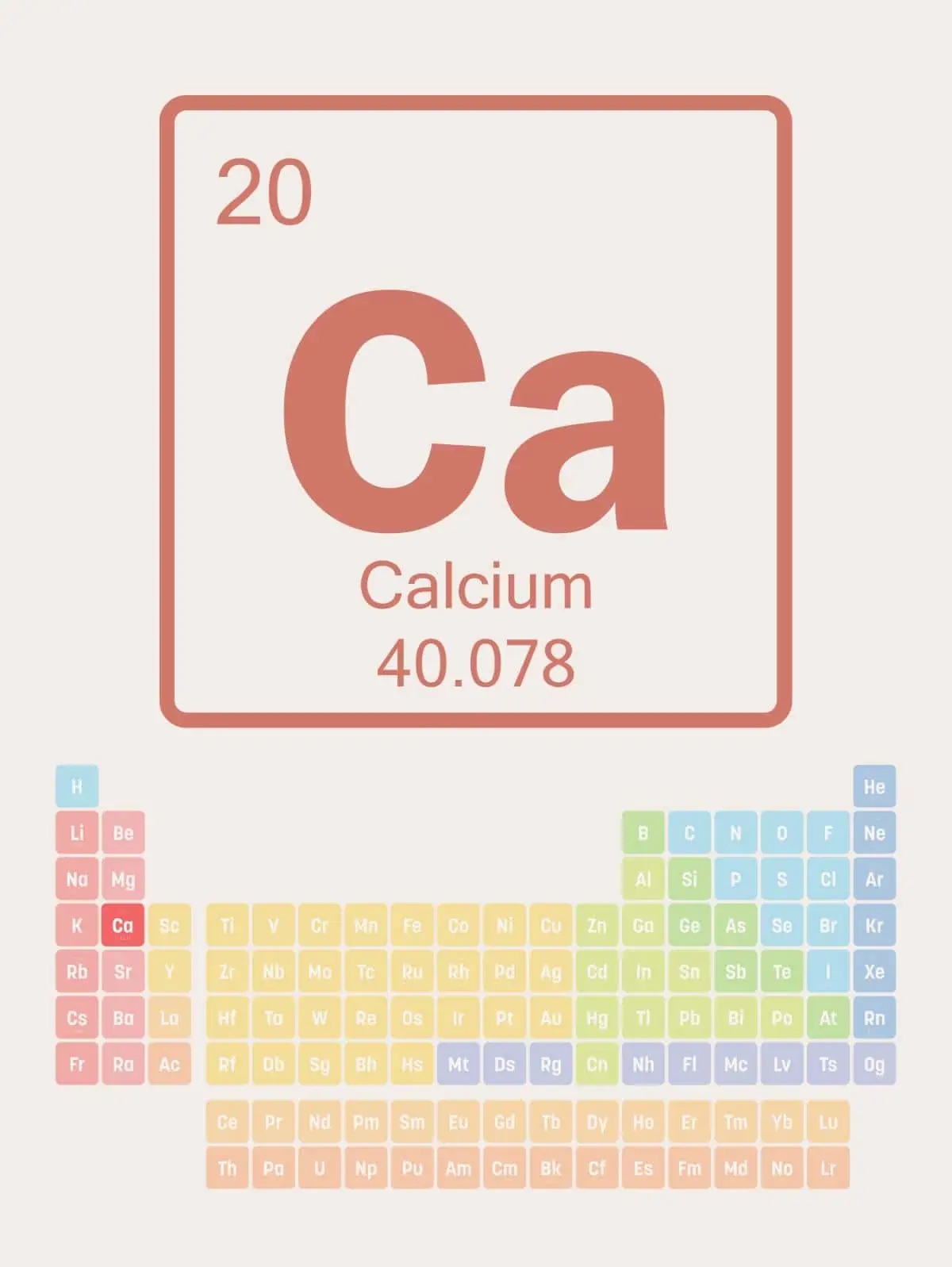
In its pure form, calcium is a shiny, silvery-white metal. But we rarely find it like this in nature because it usually pairs up with other elements. It likes to share its electrons with other elements and often ends up with a positive charge and becomes what we call a calcium ion.
Why Is It Important? In our bodies, these calcium ions are like little messengers. They help our muscles move, assist in sending signals in our brain, and play a part in many other body processes.
In nature, calcium often combines with other elements. For example, it pairs with carbon and oxygen to make something called calcium carbonate, which is found in rocks like limestone and in seashells. Also, our bones and teeth have calcium in them, combined in a special way that makes them strong.
So, when we talk about calcium in our diet, we’re talking about this fantastic element that’s not only in our food but also in the very ground we walk on and the bones inside our body!
Important Calcium Functions in the Body
Calcium is a nutrient known most widely for its importance in bone and teeth health, but it also serves other important functions in the body. Calcium plays a role in cell signaling, muscle and blood vessel contraction, blood clotting and more.
In fact, calcium is such a critical part of these physiological processes that when calcium is under-consumed, the body will break down bone in order to free up calcium for these important functions.
Bone and Teeth Health: Our bones are continuously undergoing a process of turnover. With old bone being broken down and new bone being formed, calcium ensures that this balance is maintained.
Blood Clotting: In the event of a wound or injury, calcium aids in the formation of a blood clot, preventing excessive bleeding.
Muscle Function: Calcium helps muscles contract. This includes one of the most vital muscles – the heart.
Nerve Signaling: Calcium is essential for facilitating communication between nerve cells. Given these crucial roles, it’s no wonder there’s a buzz around ensuring adequate calcium intake, especially in vegan diets.
Calcium’s Role in Bone Health
Calcium provides structure to bones, and bones provide a large storage bank for calcium in the body. While we slowly lose bone structure over time as we age, under-consuming calcium accelerates that process.
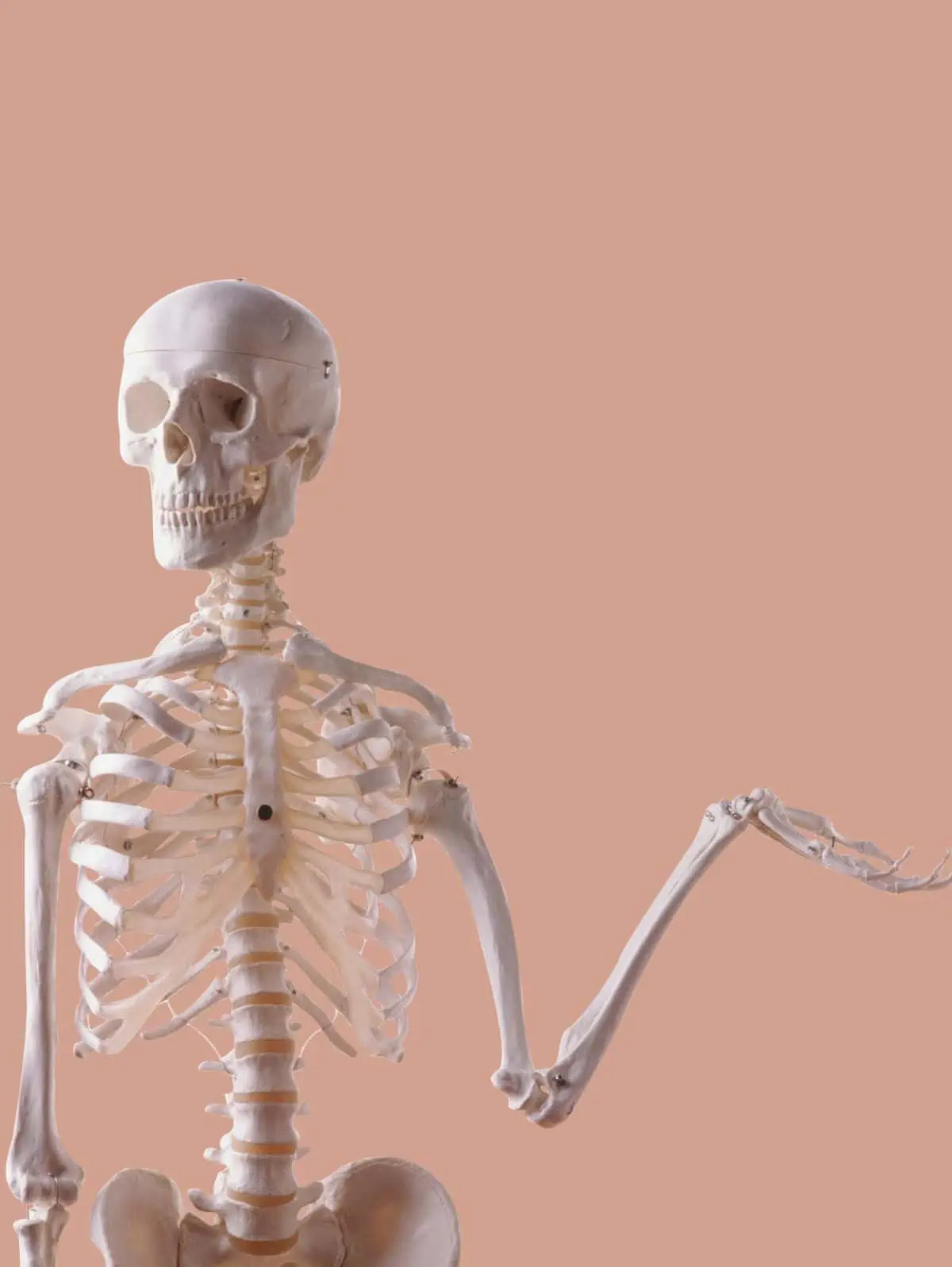
That’s because our body tightly regulates the amount of calcium in our blood, and will pull calcium from the bones to keep blood levels of calcium at the optimal level. This happens when we don’t eat enough calcium.
This is also why the amount of calcium in our blood is not a good indicator of our overall calcium status or how much calcium we’re eating. While bloodwork is a helpful way to learn about the status of some nutrients, such as iron and vitamin D, that’s not true for calcium.
The best way to assess our calcium status is to do a bone scan. Which most people don’t do unless they have a reason to believe their bones are at risk. Bone scans are not a routine part of preventative care. So, it’s best to make sure you’re getting enough calcium from vegan calcium sources outlined below to help protect your bones and minimize bone loss over time.
Most People Don’t Get Enough Calcium
Many people do not consume enough calcium—vegans included. Research has found vegans to have particularly low calcium intakes, which can be easily remedied with some basic awareness!
Getting enough calcium from plant-based foods alone can take effort. However, there are two other ways that vegans can get calcium!
Calcium Recommendations for Vegans
Adults need 1000 milligrams (mg) of calcium daily. Women over the age of 50 and men over the age of 70 need 1200 mg of calcium daily.
For reference, here is the calcium content of a few plant-based sources of calcium:
- 1 cup cooked collard greens = 268 mg calcium
- 1 cup cooked turnip greens = 197 mg calcium
- 1 cup cooked kale = 177 mg calcium
- 1 cup cooked mustard greens = 165 mg calcium
- 1 cup cooked bok choy = 158 mg calcium
- ¼ cup almonds = 96 mg calcium
- 1 cup cooked broccoli = 62 mg calcium
- 1 navel orange = 60 mg calcium
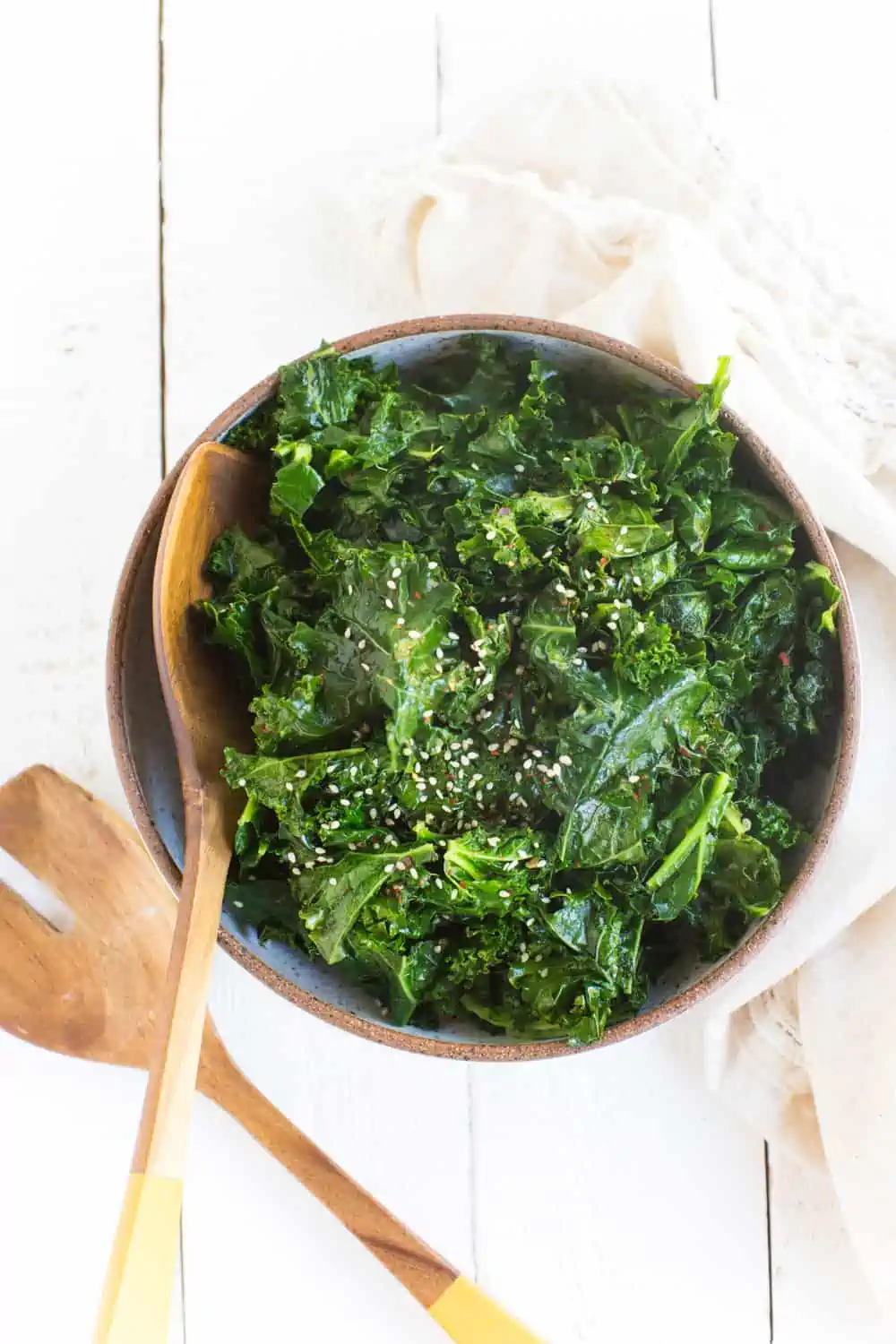
The Best Vegan Calcium Sources for Plant-Based Eaters
1. Whole Foods that are High in Calcium
The richest plant-based sources of absorbable calcium are cooked collard greens, kale, bok choy, mustard greens and turnip greens.

Other greens, such as spinach and Swiss chard, also contain calcium, but they also contain oxalate, a naturally occurring plant compound that significantly reduces our ability to absorb calcium.
Other plant-based foods, including broccoli, chia seeds, tahini, tempeh, almonds and navel oranges, contain smaller amounts of calcium. These do add up throughout the day, but aren’t usually enough to get us all the way up to the daily recommended level of calcium.

So if you’re not eating several servings of cooked, high-calcium, low-oxalate greens every day, how’s a vegan to get enough calcium?
As you can see, you’d need to eat quite a bit of these foods every day to meet your calcium requirements. Which most people don’t do.
Fortunately, vegans can easily fill in the gap with fortified foods and dietary supplements. There is no shame in using fortified foods and supplements to help you meet a nutrient need. It’s most important that you cover your nutrition bases, not that you surmount some unrealistic challenge to get every single nutrient through plant-based food alone.
In fact, we know that all vegans need at least some dietary supplements, like vitamin B12 and vitamin D. Many vegans often need additional supplements. And, meat eaters need and take plenty of supplements too!
Taking appropriate dietary supplements as a vegan doesn’t mean that a vegan diet is unhealthy. It means that you care about your health and are taking action!
2. Calcium-Fortified Foods
In addition to regularly eating calcium-rich greens, a simple way to help meet your calcium needs is to include a serving or two of calcium-fortified foods in your day.
This could look like a cup of calcium-fortified soy milk in your oatmeal, vegan cereal, or smoothie at breakfast, and a cup of calcium-set tofu at dinner.
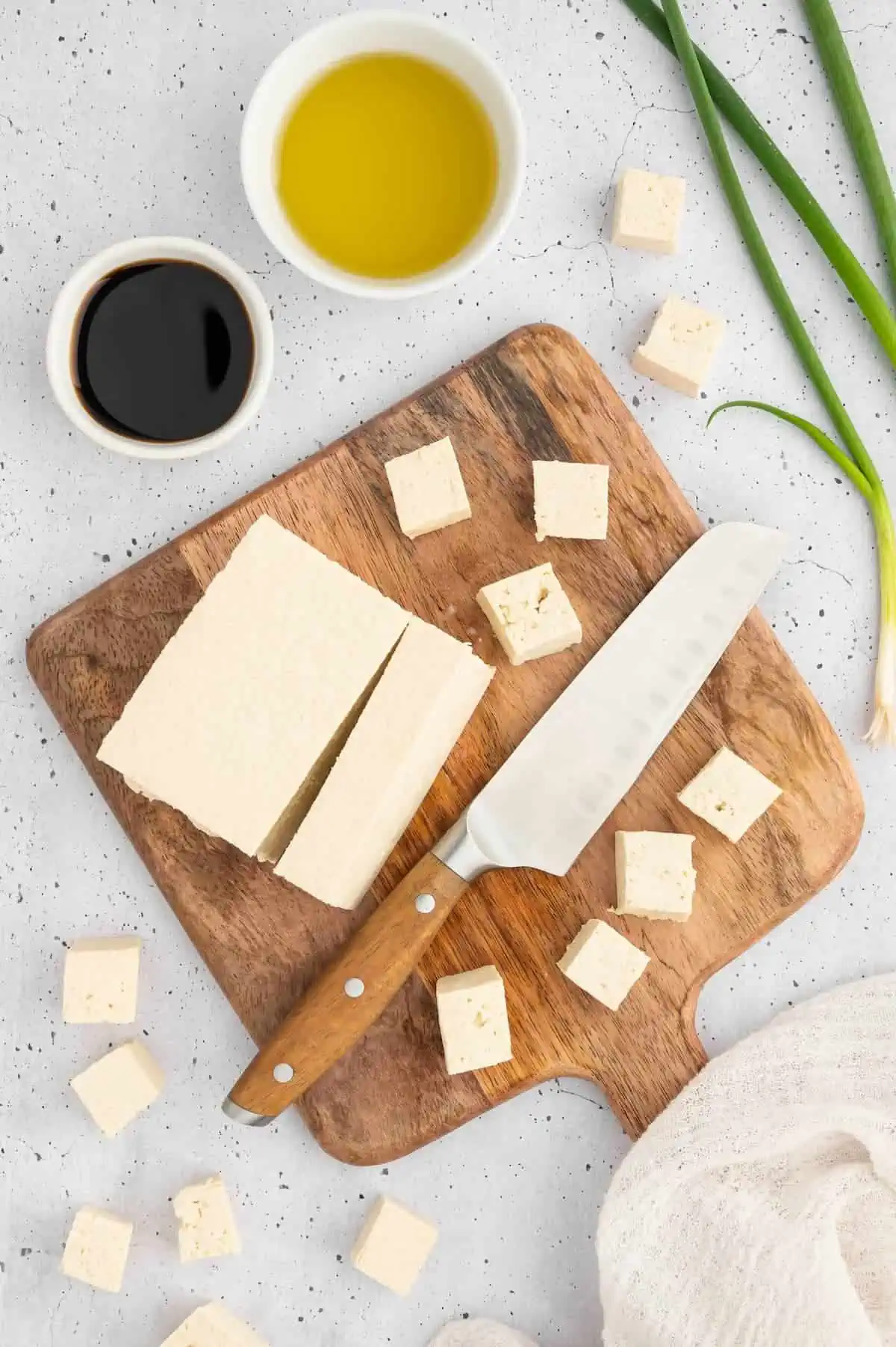
Note that a splash of milk in your coffee in the morning isn’t likely to contribute a significant amount of any nutrients. A cup of milk is the typical serving size, which is 8 fluid ounces.
Beware that not all plant milks are fortified with calcium, and some fortified milks contain smaller amounts of calcium. If you’re banking on your plant milk for calcium, read the label to make sure you’re getting a decent amount in a serving, at least 200 mg or 20% of the daily value for calcium.
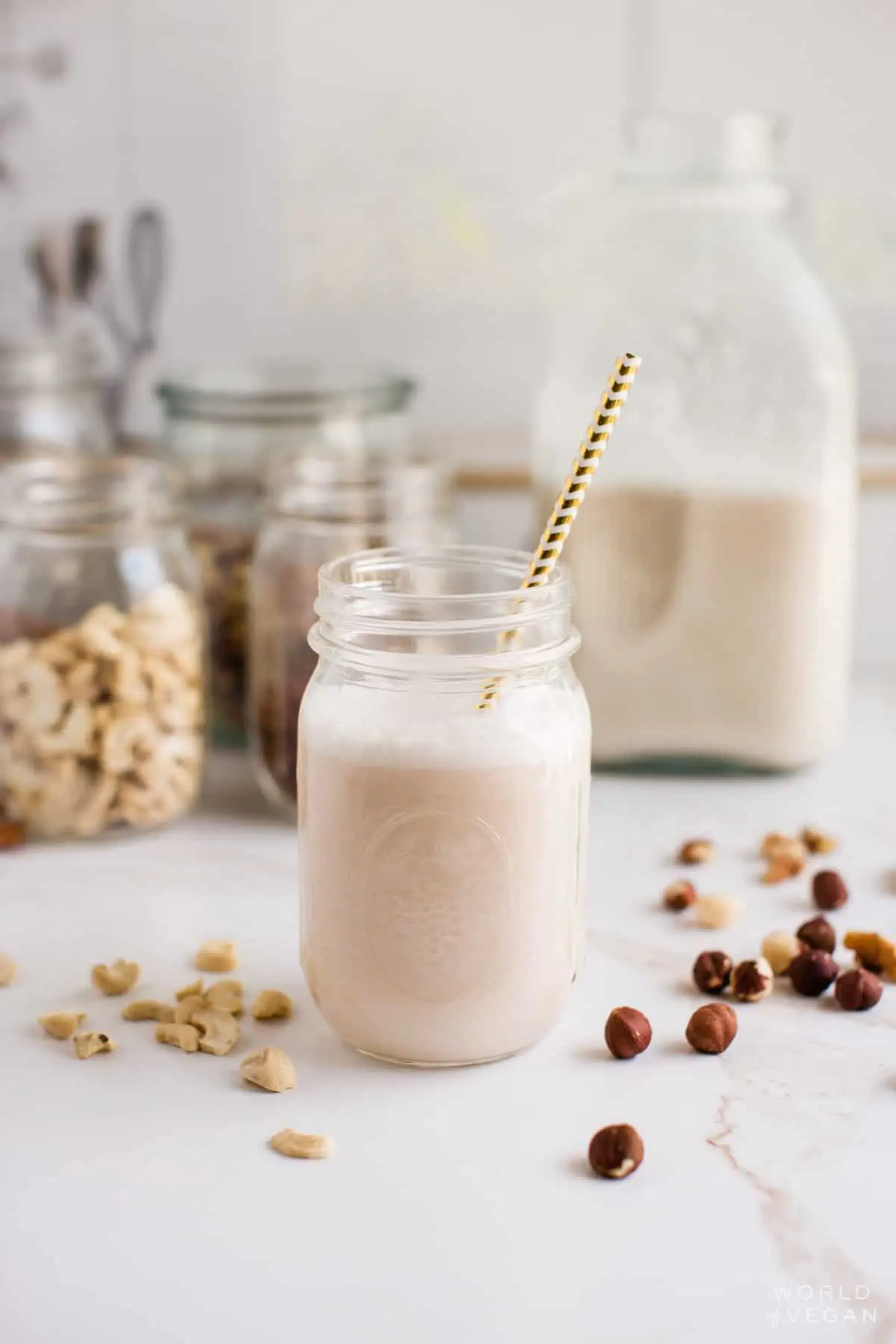
Same with tofu – not all tofu uses calcium sulfate in the setting process. Check the label to be sure.
You might be tempted to pick up a container of calcium-fortified orange juice at the grocery store to help boost your calcium intake. However, most calcium-fortified orange juice is also fortified with non-vegan vitamin D. Check the label – if it says vitamin D3 and doesn’t specify that it’s plant-based, vegan, or from lichen, you can assume it’s sourced from animals.
3. Vegan Calcium Supplements
If you don’t think you’re hitting your calcium needs (1000 mg daily or 1200 mg daily if you’re older) with whole foods and fortified foods, it’s a good idea to fill in the remaining gap with a calcium supplement.
Calcium supplements are very accessible and affordable. You can find stand-alone calcium supplements, bone-building complexes that include calcium, vegan vitamins with calcium, and more. Visit the World of Vegan vitamin guide for a list of reputable vitamin brands.
If you have low iron, be sure not to take calcium supplements with any iron-containing supplements as the calcium can inhibit iron absorption. You could take one supplement in the morning and the other in the evening to avoid any issues.
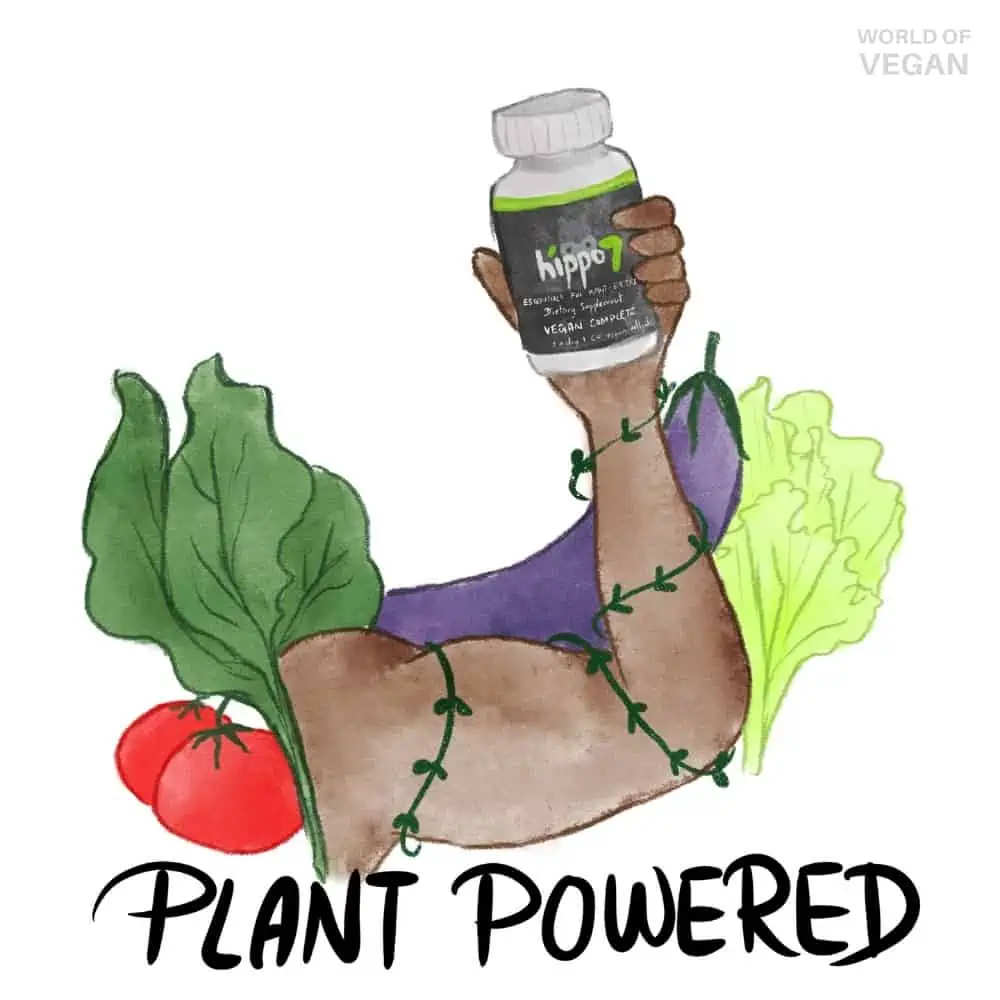
There has been some research showing adverse health effects of taking too much supplemental calcium. Taking too much of any supplement isn’t a good idea. Which is why it’s important to have an idea of how much you need so that you’re taking the appropriate dose.
Not sure how much or which type of calcium supplement is best for you? Consult with a registered dietitian for individualized guidance.
How Can Vegans Protect Their Bone Health?
Some research has found that vegans tend to have lower bone mineral density and higher fracture risk than non-vegans. This equates to poorer bone health for vegans. However, we can’t conclude that this is because vegans consume less calcium.
There are several other nutrients, as well as non-nutrition variables, that impact bone health and fracture risk. And, there may be issues with how these studies were conducted.
The best things vegans can do to protect their bones is to:
- Ensure they’re getting adequate bone-building nutrients (especially calcium, vitamin D and plant-based protein)
- Eat plenty of food overall and don’t let weight dip too low (lower weight is associated with lower bone density)
- Engage in regular weight-bearing exercise (which puts a good kind of stress on bones that helps keep them strong)
This article was written with guidance from registered dietitian Taylor Wolfram RD. Find more vegan nutrition information on Taylor’s website. Please note, the information presented here is not to be construed as medical advice or used to diagnose, treat, cure or prevent any condition or disease. Some of the photos above were sourced from Canva.com.

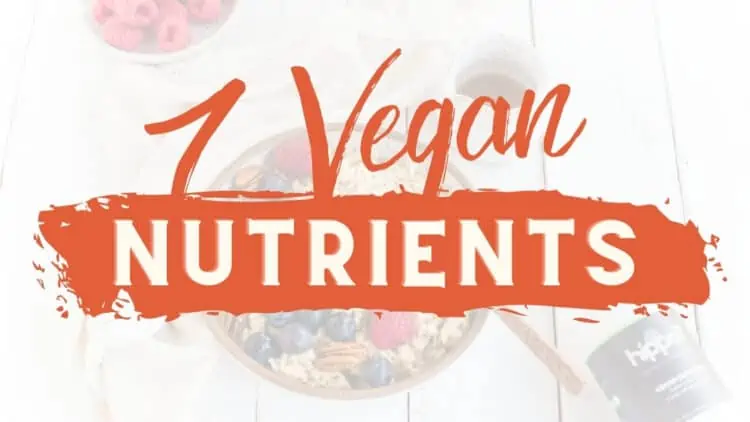
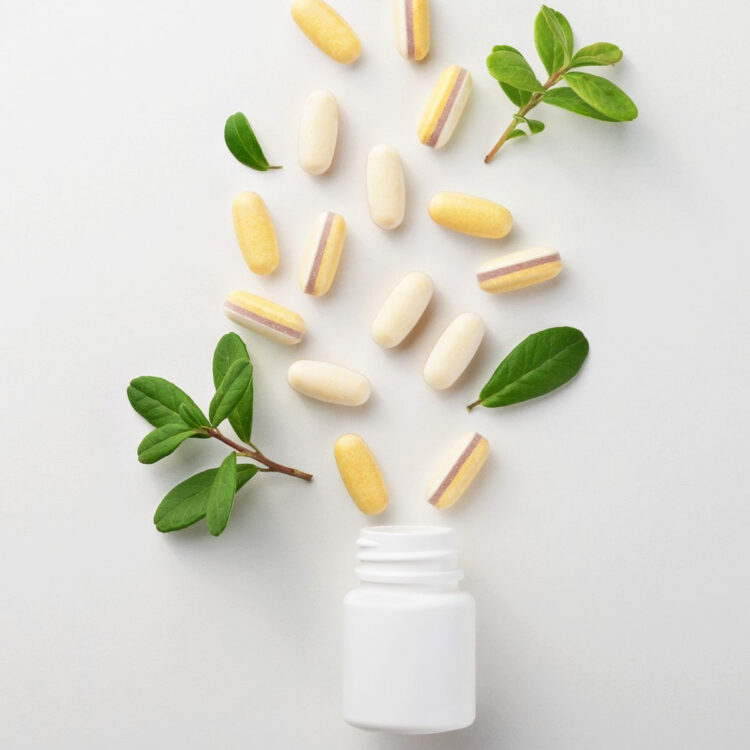
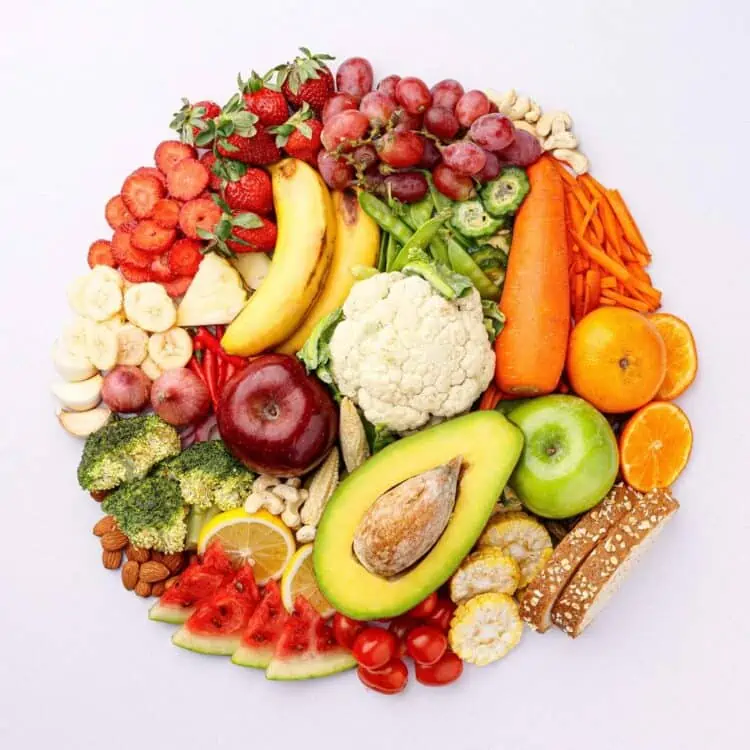


Leave a Comment